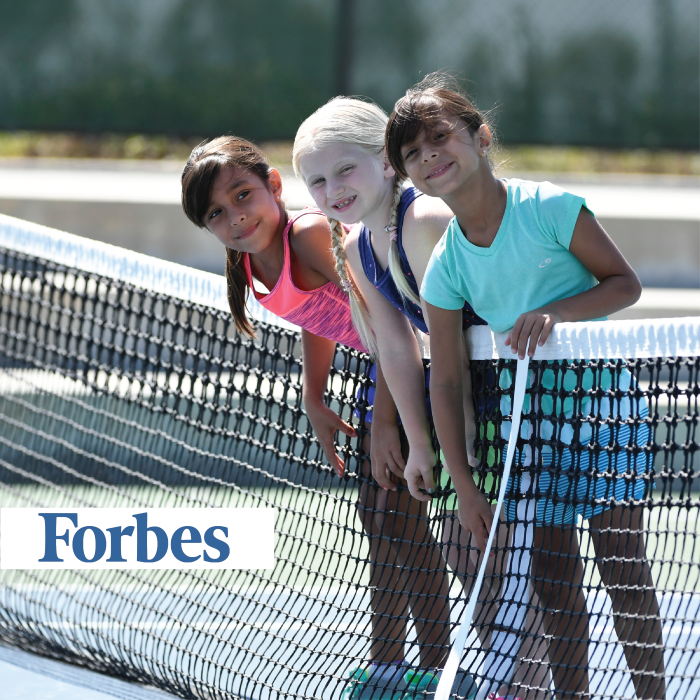
Excerpt from “Virtual Summer Camp: How Sports Are Changing For Good With Covid-19 Coronavirus”
Forbes.com, 7/20/20
As they say every cloud has a silver lining. The Covid-19 coronavirus has been hard on many sports and the people who want to watch and play them. But challenging times can get people thinking about new ways to do old things.
Take summer sports camps. For years it’s been a rite of passage for many kids to go to specific sports camps during the summer. Tennis players go to tennis camps. Football players to football camps. Soccer player to soccer camps. Synchronized swimmers to very synchronized camps. Etc. etc. etc. Camp selection could be a bit like those restaurant menus that say no substitutions allowed. Kids had to choose their path early. And those are kids who actually had the means, pre-existing skills, and moolah to go to these camps. (Moolah is a technical term for money.)
Now that the Covid-19 coronavirus pandemic and the social distancing that’s needed has tossed traditional summer camp plans in the ball hopper, a coalition of major sports organizations have decided to try something different. The U.S. Tennis Association (USTA), working with the U.S. Olympic & Paralympic Committee, USA Football, U.S. Soccer, USA Baseball, U.S. Figure Skating, and the PGA of America, are putting on the Net Generation Virtual Summer Camp from today July 20 through July 24.
It’s called “Virtual” because you won’t have to travel anywhere, except maybe from the bathroom to a place where you can move around more freely. Instead, you’ll just have to log on via the USTA’s Facebook and Twitter pages for two half-hour sessions a day, one at 11:00 am ET and a second at 3:00 pm ET. It won’t be as expensive as regular camps, assuming that you don’t consider free as expensive. All of this will make the camp more accessible to more people.
In fact, you won’t even need an opponent or partner to participate in the camp. The focus will be on drills that you can do by yourself (or at most you and a wall) without special facilities. This is to keep things safer in the times of Covid-19 coronavirus and social distancing but will also those who don’t normally have access to facilities, coaches, and others to learn the sport.
Read the full column by Bruce Y. Lee at Forbes.com.